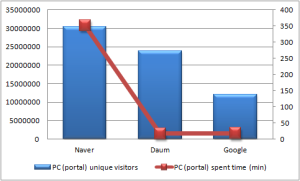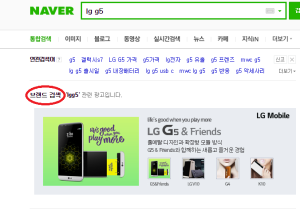Want to enter the Korean B2B market or scale your B2B campaigns in Korea? Our agency has experience forging partnerships between your company and the biggest Korean companies. Our B2B clients include international software / SaaS, hardware, ecommerce, biotech, B2G (business to government) organizations.
Contents of this blog post:
- Before you start
- Getting trust
- Get your point across
- Strategy
- Platforms
- Naver
- Brand Search
- Naver Blog / Post
- KakaoTalk
- Ads
- Channel
- Naver
- Conclusion
Before you start
Getting trust
Getting traction in Korea is not that easy, though. According to consultant Per Andersson, there are the following obstacles to get trust as a foreign company in Korea.
- Cultural / geographical, language differences
- Ignorance of the local business culture
- Strong competition
- Dense and long regulatory process
So you will have to understand your Korean partner’s behavior.
Get your point across
How to get your B2B point across without “getting lost in translation”? According to Shane Davies (also a consultant), B2B marketing is about three things:
- Your value offer
- Perception of your value relative to your competitors
- Ability to profitably communicate your value differentiators to the right customers at the right time.
Strategy
Then what is the right way to do B2B marketing in Korea? Dongwon, a Korean B2B and B2C company, used the following 3 pillars for its successful B2B marketing strategy:
- Product and technology development with customer centric mind-set
- Systematically extending new markets through business diversification
- Marking certain international markets as a bridgehead for global strategy
Platforms
Which native Korean platforms should you use in your Korean digital B2B marketing strategy?
- Naver: search engine and portal
- KakaoTalk: messaging super app
Naver
Naver, Korea’s largest search engine, is much more than just a search engine. Just like Google has services like Gmail and YouTube, Naver also has email, video, blog, communities (Cafe) encyclopedia, news and Q&A services.
Brand Search
One very eye-catching feature of Naver ads is “Brand Search”. Naver Brand Search (NBS) is an advertising product that is unique to Naver. There is no Google Ads equivalent that can be compared with it. Below is an example of a Brand Search ad.
Reasons to run Brand Search ads:
- High ROAS
- High conversion rate

Naver Blog / Post
Besides running NBS ads, we also recommend opening an official Naver Blog or Naver Post account and start publishing blog posts in Korean. The reason why is that the Naver SERP is full of user generated content (UGC). UGC is often displayed at the top of the SERP, frequently even above official websites or regular keyword / text ads.
KakaoTalk
KakaoTalk is the most used (98.3% of Koreans use it) messaging app in Korea, but people also use it for online shopping, reading news and watching TV. For companies, ads and Kakao Channel are the most interesting.
Ads
Advertising in KakaoTalk is very similar to advertising in Meta (Facebook + Instagram). You can make a new ad campaign either by 1) ad type or 2) ad goal. There are also different targets / audiences that you can choose from.
Channel
You could compare Kakao Channel (formerly known as Kakao Plus Friend) with (again) a Facebook Page. Some of the KakaoTalk Channel features are:
- Post content with copy, creatives and links
- Send messages to Channel followers, “Friends”
- Chat with prospects (live chat and chatbot also possible)
- Post 10 FAQs with auto replies
- Run ads to get more followers
- Start a shopping channel
Conclusion
Generally, Koreans in B2B are just as brand sensitive as they are in B2C. Name recognition matters in Korea. If you are well known or market leader, you have an advantage to enter / scale your campaigns in Korea.
Further reading
Business etiquette, meetings and gifts https://punchkorea.com/business-etiquette-korea/
Negotiation (beware chair throwing) https://punchkorea.com/korea-business-negotiation/
Dress code https://punchkorea.com/korean-office-attire/
Korean business culture: https://punchkorea.com/korean-business-culture/






